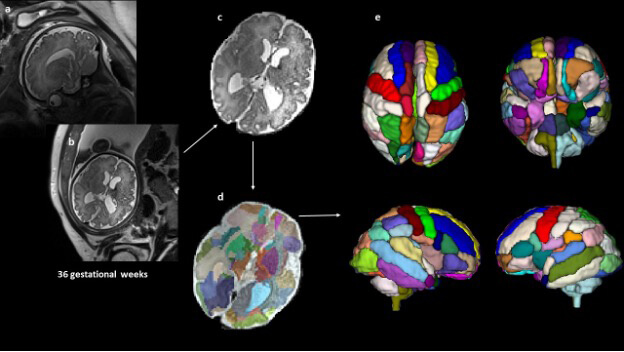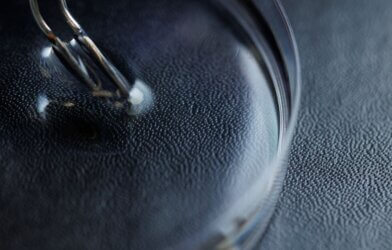Brain differences linked to autism have been observed in the womb for the first time. Harvard scientists report that children who were later diagnosed with the condition had different brain structures to those who are not when they have been in the womb for just 25 weeks.
The findings add to mounting evidence that autism begins early and will allow doctors to better treat the condition by diagnosing it when children are younger. Scientists have not yet been able to understand what causes autism, but both genetic and environmental factors are thought to play a part in its onset.
Autism can currently only be diagnosed when children are older than 18 months, but early treatment has been shown to improve the language and cognitive abilities of young ones with autism.
For the world first study, researchers analyzed 39 MRI brain scans from fetuses taken at Boston Children’s Hospital. Mothers were 25 weeks pregnant on average when the scans were taken.
Nine of the children later were diagnosed with autism. Ten ended up with other health conditions also observed in autistic children, but were never diagnosed with the condition. The other 20 kids ended up with normal brains.
The research team segmented the brain scans and compared segmented brain regions in different groups. The brain’s insular lobe was found to be significantly bigger in unborn babies who were later diagnosed with autism than those who were not. The insula is a region found deep inside the brain and is believed to have a role in perceptual awareness, social behaviur and decision-making.
The amygdala and hippocampal commissure, which are both brain regions, were bigger in autistic children compared with children who had other health conditions, but were not autistic.
The findings align with other recent studies which found changes to the insular cortex in autistic adults and suggest these differences may begin in the womb.
“Earlier detection means better treatment. Our results suggest that an increased volume of the insular lobe could predict the emergence of autism later in life,” says study first author Dr. Alpen Ortug, a postdoctoral research fellow at Athinoula A. Martinos Center for Biomedical Imaging at Massachusetts General Hospital,” in a statement. “Given that many genetic and environmental factors could affect the emergence of autism starting in the fetal stages, it is ideal to identify the earliest signature of brain abnormalities in prospective autism patients.
“To the best of our knowledge,” Ortug continues, “this is the first attempt to semi-automatically segment the brain regions in the prenatal stage in patients who are diagnosed with autism later and compare different groups.”
One in every 68 American children are diagnosed with autism, also called autism spectrum disorder. It’s a complex developmental disorder that can cause people to struggle with communication, cognitive processing, emotional awareness and perception.
The findings were presented at the American Association for Anatomy annual meeting, which took place during the Experimental Biology 2022 meeting in Philadelphia.
Article by South West News Service writer Gwyn Wright.












